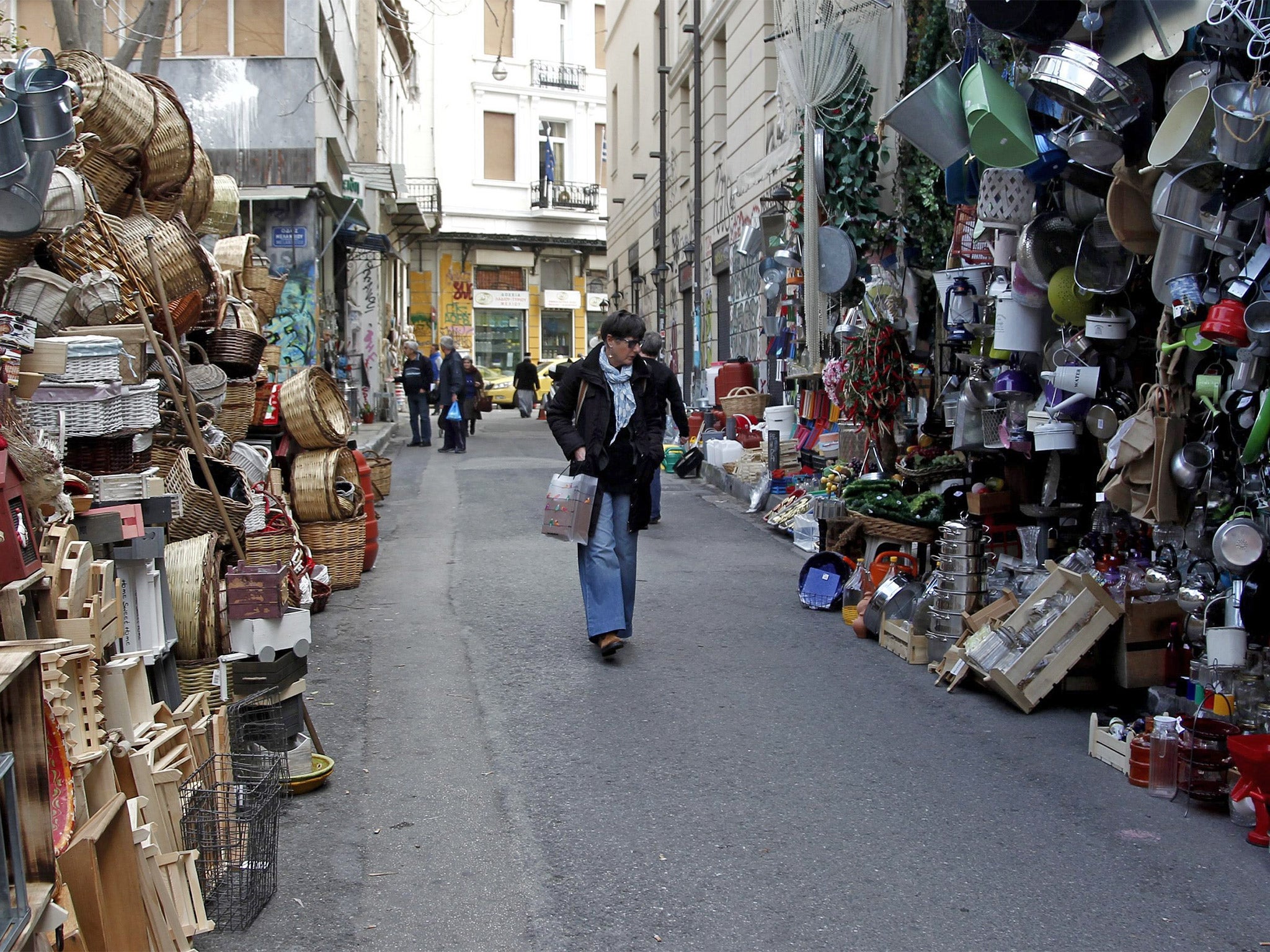Germany rejects Greek calls for Second World War reparations
Two nations seek an agreement over Greece’s repayments

Your support helps us to tell the story
From reproductive rights to climate change to Big Tech, The Independent is on the ground when the story is developing. Whether it's investigating the financials of Elon Musk's pro-Trump PAC or producing our latest documentary, 'The A Word', which shines a light on the American women fighting for reproductive rights, we know how important it is to parse out the facts from the messaging.
At such a critical moment in US history, we need reporters on the ground. Your donation allows us to keep sending journalists to speak to both sides of the story.
The Independent is trusted by Americans across the entire political spectrum. And unlike many other quality news outlets, we choose not to lock Americans out of our reporting and analysis with paywalls. We believe quality journalism should be available to everyone, paid for by those who can afford it.
Your support makes all the difference.The already strained relations between Athens and Berlin worsened today, as German officials blocked a Greek effort to secure reparations for the Nazi occupation in the Second World War.
The Prime Minister, Alexis Tsipras, revived the subject of reparations this week, as the two nations seek an agreement over Greece’s repayments to international lenders. He has demanded that Berlin pay more than €160bn (£112bn) in reparations.
While the campaign for war reparations has been going on for decades, it has found new momentum during the financial crisis, not least because of Berlin’s insistence on the imposition of tough austerity on the country, in exchange for €240bn in bailout loans.
Any talk of reparations was given short shrift by Berlin yesterday. “We won’t be conducting any talks or negotiations with the Greek side” about Second World War compensation, German finance ministry spokesman Martin Jaeger told reporters in Berlin.
He added: “We should look forward together. Making these emotional and backward-looking allegations doesn’t help in the context of the work we need to tackle together with the Greeks.”
Greece’s hard-left government’s reparation demands include compensation for the death and destruction caused by the German occupation of Greece and a loan of 476 million Reichsmarks the Central Bank of Greece was forced to make to the Nazis.
In 2000, Greece’s Supreme Court rejected a German appeal against a law allowing Athens to seize German property in compensation for war crimes against villagers in Distomo, where members of the Waffen-SS massacred more than 200 people, including women and children.

Germany has repeatedly dismissed Greek claims, saying that it has already covered its obligations in the post-war reparations it has since paid to the country.
Alex Roggenkamp, of the German Academic Exchange Service, based in Athens, told The Independent: “Cameras are camped outside – whoever goes out, we’re being asked our comments although no one really wants to comment on that.”
Greek analyst George Tzogopolous of the think-tank Eliamer said the government’s decision to bring up the issue of war reparations was “bad timing” and that the likelihood of Germany giving in to the Greek demand was low.
“This isn’t about pressure. Syriza believes it can make a successful claim by bringing the issue back on the agenda, forcing Germany to pay up,” he said. “It’s very difficult for this to happen, it will take a very long time and the German war reparations aren’t the top priority for Greece at the moment.”
According to estimates, between 4 and 11 per cent of the Greek population died during the 1941-45 Nazi occupation, which left widespread destruction.
Join our commenting forum
Join thought-provoking conversations, follow other Independent readers and see their replies
Comments